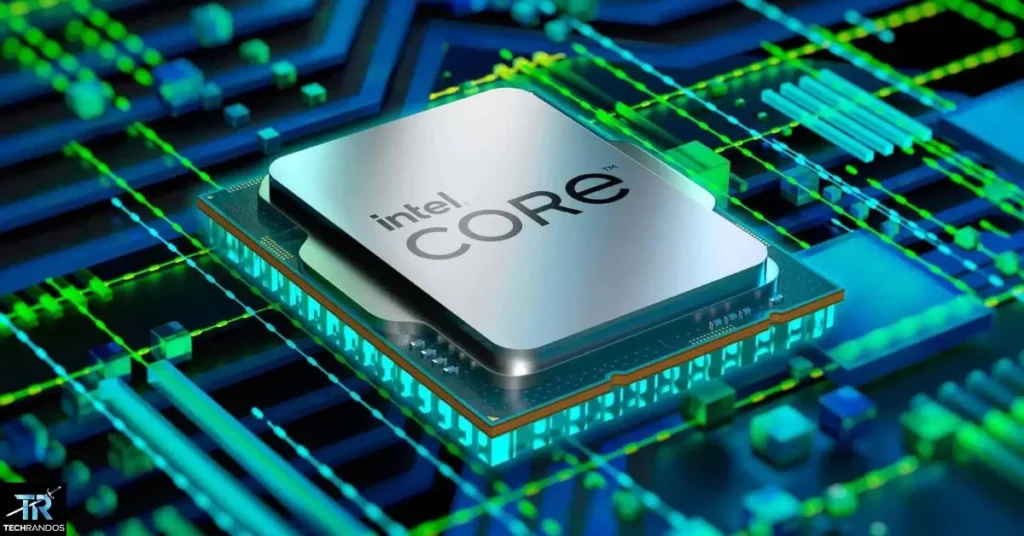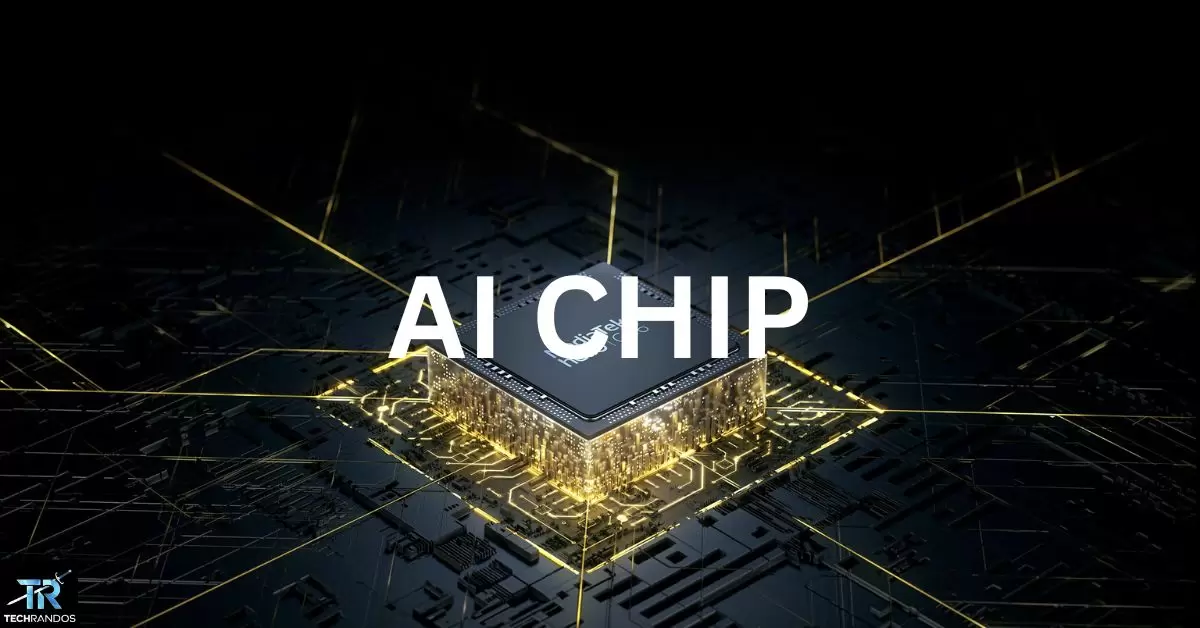In the heart of Silicon Valley and beyond, a new gold rush is underway. But instead of pickaxes and pans, today’s prospectors wield silicon wafers and neural networks. The prize? Dominance in the AI chip market, where powerful processors are the backbone of our AI-driven future.
From generative AI that can write poetry to large language models that can answer complex queries in milliseconds, artificial intelligence is hungry for high-speed compute. And as the demand for AI grows, so does the need for more powerful, efficient chips to fuel this digital transformation.
Let’s dive into the world of the 10 top AI chip companies that are not just riding the wave of innovation but shaping the very future of technology.
The Silicon Valley Titans
1. NVIDIA: The Undisputed King of AI Chips
When it comes to AI chips, NVIDIA is the 800-pound gorilla in the room. Their dominance is so complete that some joke AI stands for “All NVIDIA.” But how did they get here?
NVIDIA’s journey to the top of the AI chip mountain began with a savvy pivot. Originally known for gaming GPUs, the company recognized early on that the parallel processing power of graphics cards could be harnessed for AI computations. This foresight paid off big time.
The H100: NVIDIA’s Crown Jewel
At the heart of NVIDIA’s AI empire sits the H100 AI accelerator chip. This isn’t just any chip – it’s the Ferrari of AI processors. Here’s what makes it special:
- Transformer Engine: Optimized for large language models
- Fourth-Generation Tensor Cores: Delivering up to 60 teraflops of FP8 compute
- HBM3 Memory: Offering a massive 3TB/s of memory bandwidth
But NVIDIA isn’t resting on its laurels. The company recently announced the NVIDIA Blackwell platform, promising to slash the cost and energy consumption of running real-time generative AI by a staggering 25 times.
NVIDIA’s Stock: A Barometer of AI Hype
NVIDIA’s stock price has become a kind of proxy for AI enthusiasm in the market. As of 2024, the company’s value has skyrocketed, reflecting its pivotal role in powering everything from ChatGPT to Tesla’s self-driving ambitions.
2. AMD: The Underdog with Bite
While NVIDIA may be the current heavyweight champ, AMD is training hard for a title fight. Known for giving Intel a run for its money in the CPU market, AMD is now setting its sights on the AI chip arena.
Ryzen PRO 8000: AI for the Masses
AMD’s latest salvo in the AI chip wars is the Ryzen PRO 8000 series. These processors aren’t just for data centers – they’re bringing AI capabilities to your everyday business laptop. Key features include:
- Dedicated AI engine on-chip
- Enhanced security features for enterprise use
- Improved power efficiency for longer battery life
But AMD’s ambitions don’t stop at personal computing. The company’s AI Instinct MI300 series is squarely aimed at the data center market, promising performance that could give NVIDIA a run for its money.
Case Study: AMD vs. NVIDIA in the Cloud
| Feature | AMD MI300X | NVIDIA H100 |
| Memory | 192GB HBM3 | 80GB HBM3 |
| FP64 Performance | 52.9 TFLOPS | 30 TFLOPS |
| AI-Optimized Cores | Yes | Yes |
| Market Adoption | Growing | Dominant |
While NVIDIA still leads in market share, AMD’s aggressive pricing and performance improvements are making waves. Cloud providers like Microsoft Azure are increasingly offering AMD options, giving customers more choice in their AI infrastructure.
Tech Giants Throwing Their Hats in the Ring
3. Intel: The Old Guard’s New Tricks

Intel, the company that put the “silicon” in Silicon Valley, isn’t about to let the AI revolution pass it by. After some missteps in the mobile era, Intel is doubling down on AI to maintain its relevance in the chip world.
Gaudi2: Intel’s AI Ace
Intel’s answer to NVIDIA’s dominance is the Gaudi2 AI accelerator. Designed specifically for training large language models and powering generative AI software, Gaudi2 represents Intel’s most serious foray into the AI chip market yet.
Key features of Gaudi2 include:
- 24 100 Gigabit Ethernet ports for scaling
- 96GB of HBM2e memory
- Specialized matrix multiplication engines
But Intel’s AI strategy isn’t limited to data centers. The company’s Core Ultra line brings AI acceleration to consumer laptops, potentially democratizing AI creation tools for the masses.
4. IBM: Thinking Outside the Box
When you think of cutting-edge chip design, IBM might not be the first name that comes to mind. But the company that gave us the PC is far from out of the game. In fact, IBM’s approach to AI chips might just be the most revolutionary of all.
NorthPole: A Brain-Inspired Chip
IBM’s NorthPole chip takes its cues not from traditional computer architecture, but from the human brain itself. This neuromorphic approach could rewrite the rules of AI computation.
What makes NorthPole special:
- Entire neural networks on a single chip
- Dramatic reduction in power consumption
- Potential for more “brain-like” AI processing
While still in the research phase, NorthPole represents the kind of outside-the-box thinking that could leapfrog current AI chip designs.
Mobile Mavens and Cloud Commanders
5. Qualcomm: Bringing AI to Your Pocket
As our smartphones become smarter, Qualcomm is ensuring that AI isn’t just a cloud-based phenomenon. Their Snapdragon processors are bringing machine learning capabilities right to your pocket.
Snapdragon: More Than Just Mobile
Qualcomm’s latest Snapdragon chips don’t just power your phone calls and texts. They’re full-fledged AI powerhouses:
- On-device natural language processing
- Real-time image recognition and enhancement
- Efficient inferencing for voice assistants
But Qualcomm isn’t stopping at mobile. Their AI chips are finding their way into cars, IoT devices, and even PCs, creating a powerful combination of edge and cloud AI capabilities.
6. Google: From Search to Silicon
When you’re processing as much data as Google, sometimes you need to build your own tools. That’s exactly what the search giant has done with its entry into the AI chip market.
Google Axion Processors: Cloud AI’s Secret Weapon
Google’s recently announced Axion Processors mark the company’s first foray into ARM-based CPUs designed specifically for AI workloads. While you won’t be able to buy these chips directly, they’ll be powering Google Cloud services, potentially giving the company a significant edge in the cloud AI market.
Key benefits of Axion Processors:
- 30% more powerful than current general-purpose chips
- Optimized for Google’s AI software stack
- Potential for more cost-effective cloud AI services
Recommended Post: Unveiling the Core: What Is the Primary Objective of AI?
E-commerce Empire Strikes Back
7. Amazon: Prime Delivery of AI Power

Not content to let Google have all the fun, Amazon has also thrown its considerable weight into the AI chip ring. As the largest cloud provider through AWS, Amazon’s chip designs could have a massive impact on the AI landscape.
Trainium 2: Training the Next Generation of AI
Amazon’s Trainium 2 chip is specifically designed for the herculean task of training large language models. Paired with their Inferentia accelerator for running those models, Amazon is creating a full-stack AI chip solution.
Amazon’s AI chip strategy includes:
- Custom-designed chips for AWS services
- Integration with popular AI frameworks
- Potential cost savings for AWS customers
With a $4 billion investment in AI company Anthropic and a robust machine learning infrastructure, Amazon is positioning itself as a major player in both AI services and the chips that power them.
Specialized Startups Shaking Things Up
8. Cerebras: David vs. Goliath
In a market dominated by tech giants, Cerebras Systems is the plucky startup that dares to dream big – really big. Their approach to AI chips is nothing short of revolutionary.
The WSE-3: A Wafer-Scale Wonder
Cerebras has taken the bold step of creating an AI chip the size of an entire silicon wafer. The result is the WSE-3, which the company claims is the “world’s fastest AI chip.”
What makes the WSE-3 special:
- 2.6 trillion transistors
- 850,000 AI-optimized cores
- 40 GB of on-chip memory
While Cerebras may not have the market share of NVIDIA or Intel, their innovative approach could reshape how we think about AI chip design.
Surprise Contenders
9. Microsoft: More than Just Software
Microsoft’s entry into the AI chip market came as a surprise to many. Known primarily for software, the company’s Azure cloud division is now getting into the silicon game.
Azure Maia 100: Cloud AI’s New Contender
The Azure Maia 100 is Microsoft’s first custom AI chip, designed to power its cloud AI services. While details are still emerging, the chip represents Microsoft’s desire to control every aspect of its AI stack.
Potential impacts of Azure Maia 100:
- More efficient Azure AI services
- Tighter integration with Microsoft’s software
- Reduced reliance on third-party chip makers
With Microsoft’s significant stake in OpenAI and its market-leading Copilot AI assistant, the Azure Maia 100 could be a game-changer in the cloud AI space.
10. Apple: Fashion-Late but Fabulous?
Apple has a history of not being first to market but still redefining it when they arrive. Their rumored M4 chip could follow this pattern in the AI chip space.
M4: AI for the Masses?
While details are scarce, Apple’s rumored M4 chip is said to be focused on AI capabilities for consumer devices. This could bring powerful on-device AI to millions of Macs, iPhones, and iPads.
Potential features of the M4:
- Enhanced natural language processing
- Improved image and video manipulation
- More powerful Siri capabilities
If Apple’s track record is any indication, the M4 could set a new standard for consumer AI chips, potentially reshaping the market once again.
The Future of AI Chips: What’s Next?
As we look to the horizon, the AI chip landscape is evolving at a breakneck pace. Here are some trends to watch:
- Specialization: More chips designed for specific AI tasks
- Edge AI: Increased focus on AI processing in devices, not just the cloud
- Quantum Computing: Potential integration with traditional AI chips
- Sustainability: Growing emphasis on energy-efficient AI computation
The race to build the best AI chips is far from over. As these 10 top AI chip companies continue to innovate, we can expect even more powerful, efficient, and specialized processors to emerge.
Conclusion
As artificial intelligence continues to transform our digital landscape, the 10 Top AI Chip Companies at the forefront of chip development are poised to shape the future in profound ways. These pioneering innovators are driving breakthrough advancements that will power the next generation of intelligent technologies, from autonomous vehicles to cutting-edge robotics.
By understanding the unique strengths and specialties of these industry leaders, we can gain insights into the innovations that will redefine how we live, work, and interact with the world around us. As the silicon revolution marches on, these 10 Top AI Chip Companies will undoubtedly play a pivotal role in ushering in a new era of unprecedented technological progress and human-machine collaboration.
Their cutting-edge solutions will continue to push the boundaries of what’s possible, transforming our digital future one breakthrough at a time.
Frequently Asked Questions
What are the 10 Top AI Chip Companies featured in this guide?
The 10 Top AI Chip Companies covered in this guide include industry leaders such as Nvidia, Intel, AMD, Qualcomm, and others at the forefront of AI chip development.
How are these AI chip companies shaping the digital future?
The 10 Top AI Chip Companies are driving breakthrough advancements in AI-powered technologies, from autonomous vehicles to intelligent robotics, that will redefine how we live and work.
What makes these AI chip innovators so influential?
These companies possess unique strengths and specialties that allow them to push the boundaries of what’s possible with AI, fueling the next wave of technological progress.
Why is understanding these 10 Top AI Chip Companies important?
Gaining insights into the work of these industry leaders provides valuable foresight into the innovations that will transform our digital landscape in the years to come.
What impact will the silicon revolution have on our future?
As the silicon revolution marches on, the 10 Top AI Chip Companies will play a pivotal role in ushering in a new era of unprecedented technological advancement and human-machine collaboration.











